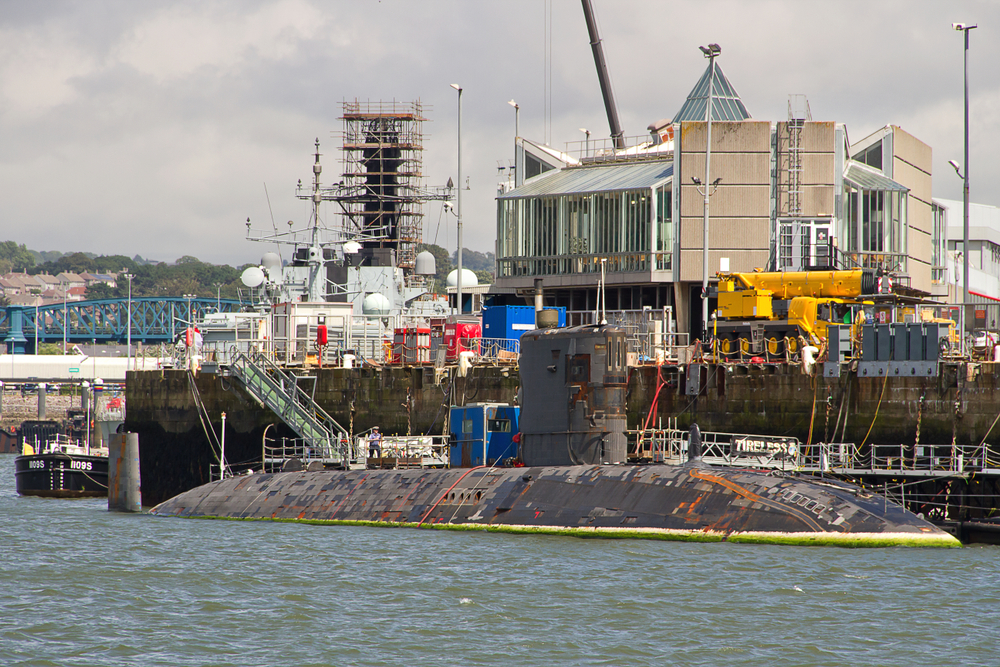UK secures future nuclear deterrence with $11B Rolls-Royce ‘Unity’ contract
The United Kingdom has awarded Rolls-Royce its largest-ever defense contract, valued at $11.1 billion, for the design, manufacture, and support of nuclear reactors for the Royal Navy’s submarine fleet. This landmark deal, officially dubbed the “Unity” contract, is an eight-year agreement that will reinforce the UK’s continuous at-sea deterrent (CASD) and bolster the AUKUS trilateral partnership between the UK, the United States, and Australia.

Enhancing the UK’s Nuclear Deterrence
The UK’s nuclear deterrent is unique among nuclear powers in that it relies solely on submarine-based ballistic missile capabilities. Unlike other nuclear states that maintain a triad of ground, air, and sea-based nuclear delivery systems, Britain’s deterrent is singularly focused on its fleet of nuclear-powered ballistic missile submarines (SSBNs).
Currently, CASD is maintained by four Vanguard-class submarines, each armed with Trident 2 D5 missiles. These vessels have been operational since the 1990s and are now approaching the end of their service life. The UK government has committed to replacing them with four next-generation Dreadnought-class submarines in the 2030s, ensuring the continuity of CASD for decades to come.
The Unity contract provides critical funding to Rolls-Royce for reactor development and ongoing maintenance of the current and future fleet, enabling the company to operate more efficiently while reducing costs and waste. UK Defence Procurement Minister Maria Eagle stated that the contract will save over £400 million while fulfilling the government’s commitment to providing value for taxpayers.
AUKUS and the Role of the UK in Submarine Development
Beyond supporting the Dreadnought-class program, the Unity contract aligns with the broader AUKUS security partnership. This trilateral alliance, announced in 2021, is aimed at strengthening defense cooperation between the UK, the US, and Australia, particularly in the development of nuclear-powered submarines for the Royal Australian Navy.
Under AUKUS, Australia will replace its aging Collins-class diesel-electric submarines with a fleet of nuclear-powered attack submarines (SSNs). The UK and US are committed to assisting Australia in developing these capabilities, including the transfer of nuclear propulsion technology. The plan includes an interim phase where Australia will acquire at least three US-built Virginia-class submarines before transitioning to a new class of SSNs, referred to as SSN-AUKUS. These vessels will be based on a next-generation design from UK defense giant BAE Systems and incorporate technologies from all three partner nations.
Rolls-Royce’s Derby facility in England, a key hub for the production of nuclear propulsion systems, will undergo significant expansion to meet the increased demand for reactors from both the Royal Navy and AUKUS partners. According to Rolls-Royce, this expansion will nearly double the size of the existing site, reinforcing the UK’s role as a leader in naval nuclear propulsion.
Long-Term Investment in Future Submarine Fleets
The Unity contract builds on previous defense investments, including the £4 billion awarded in 2023 for the AUKUS Detailed Design and Long Leads (D2L2) phase. This funding, distributed to Rolls-Royce, BAE Systems, and Babcock, was earmarked for design, prototyping, and procurement of essential long-lead components for future UK submarines. These submarines will replace the current Astute-class SSNs from the late 2030s, ensuring that the Royal Navy remains at the cutting edge of undersea warfare.
The future fleet will include:
-
Four Dreadnought-class SSBNs, replacing the Vanguard-class and continuing CASD.
-
SSN-AUKUS attack submarines, which will replace Astute-class SSNs and feature advanced capabilities for both UK and Australian navies.
-
Australian SSN-AUKUS submarines, built with UK-designed technology in collaboration with BAE Systems and ASC Pty Ltd.
Strategic and Economic Impact
The Unity contract has broad implications beyond defense. It underscores the UK’s long-term commitment to nuclear security while providing substantial economic benefits, particularly in the Midlands region, where Rolls-Royce’s Derby facility is located. The expansion of this facility will create new jobs and further solidify the UK’s position as a global leader in submarine propulsion technology.
Additionally, by streamlining operations and reducing inefficiencies, the contract demonstrates the UK’s effort to manage defense spending responsibly while ensuring the Royal Navy remains at the forefront of naval warfare. The investment is also a clear signal of the UK’s commitment to NATO and global security, reinforcing its role as a key ally within the alliance.
Conclusion
The awarding of the $11.1 billion Unity contract to Rolls-Royce represents a significant milestone in the UK’s defense strategy. It ensures the continuation of CASD, advances the AUKUS partnership, and paves the way for the next generation of nuclear-powered submarines. By securing long-term investment in nuclear propulsion technology, the UK is not only safeguarding its national security but also strengthening its industrial base and defense capabilities for decades to come.
As geopolitical tensions continue to rise, maintaining a credible and effective nuclear deterrent remains a top priority for the UK government. The Unity contract is a crucial step in fulfilling this mission while fostering deeper collaboration with allies in the US and Australia. With Rolls-Royce at the helm of this ambitious initiative, the UK is well-positioned to navigate the evolving security landscape and uphold its commitments to global stability.










